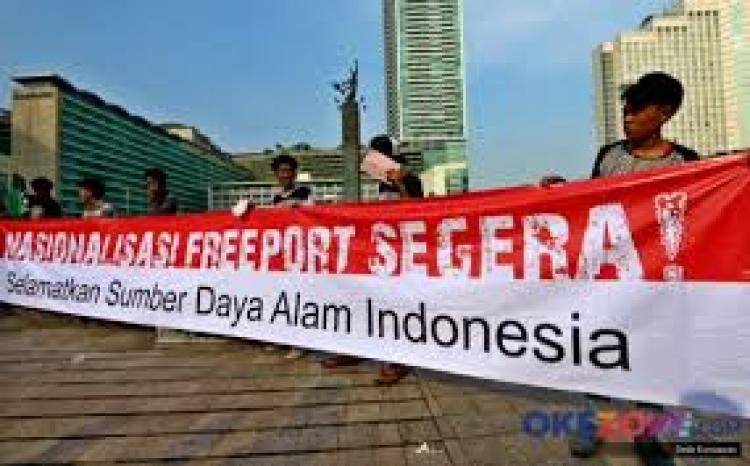In-Depth Analysis: Awaiting the Conclusion of Freeport’s Tax Negotiations

The renegotiation of the contract of work between the Government of Indonesia and PT. Freeport Indonesia (PTFI) has met with difficulties. The main cause is the different fiscal schemes referred to by the parties. The government is leaning to the prevailing scheme, which is a dynamic tax scheme following existing laws and regulations, while PTFI wants the naildown scheme that refers to the articles of the Contract of Work that have been used and fixed.
The tax collection scheme is one of the four unresolved points of the renegotiation. Three other aspects are contract extension, smelter construction, and divestment obligation. All points should have been resolved 6 years ago. Article 169 of Law no. 4 of 2009 on Minerals and Coal (Minerba Law) states that all mining activities carried out within the framework of the existing contracting regime when the law is established shall remain valid until the expiry of the contract period, with the obligation to adjust the contents of the contract by no later than 1 year since the coming into effect of the Law.
The fiscal impact of the change of management regime should be able to force PTFI to adjust the imposition of the tax system to the applicable provisions, instead of using the fixed taxation scheme agreed upon when the contract was made.
Based on the resolution of United Nations General Assembly (UNGA) no. 1803 on the state’s Permanent Sovereignty over Natural Resourcesof 1962, it was stated that agreements on the distribution of profits derived from natural resource exploitation activities by foreign investors should be regulated under national regulations. This has been implemented by the United Kingdom and Norway, which in 1975 legalized new legislations to force higher taxation of oil concession holders in their respective countries, adjusting to the increase in profits due to the soaring world oil price (IGJ, 2017).
In the Indonesian context, the Directorate General of Taxes (DJP) discloses that with the prevailing scheme, although the applied Corporate Income Tax (PPhBadan) rate is lower than that in the Contract of Work – based on Law No. 36 of 2008 on Income Tax, the tariff of the corporate income tax is 25%, while the contract of work sets a rate of 35% – the government will obtain additional tax income from other tax objects such as dividend tax, 10% Value Added Tax, 2.5-3% Sales Tax (VAT) and 7.5% export fees. In addition to taxes, the government will also get additional state revenue from royalties: 4% from copper, 3.75% from gold, 3.25% from silver, and land rents.
The government’s desire to change the tax scheme to the prevailing one should be supported because PTFI’s revenue contribution continues to decline since 2010. Even the government, as the holder of 9.36% of the shares, has not received any dividend since 2012 (Katadata.co, 2015). It is fitting that the momentum of renegotiation is to be exploited by the government as much as possible for the greatest prosperity of the people. (Mouna/Ade)










